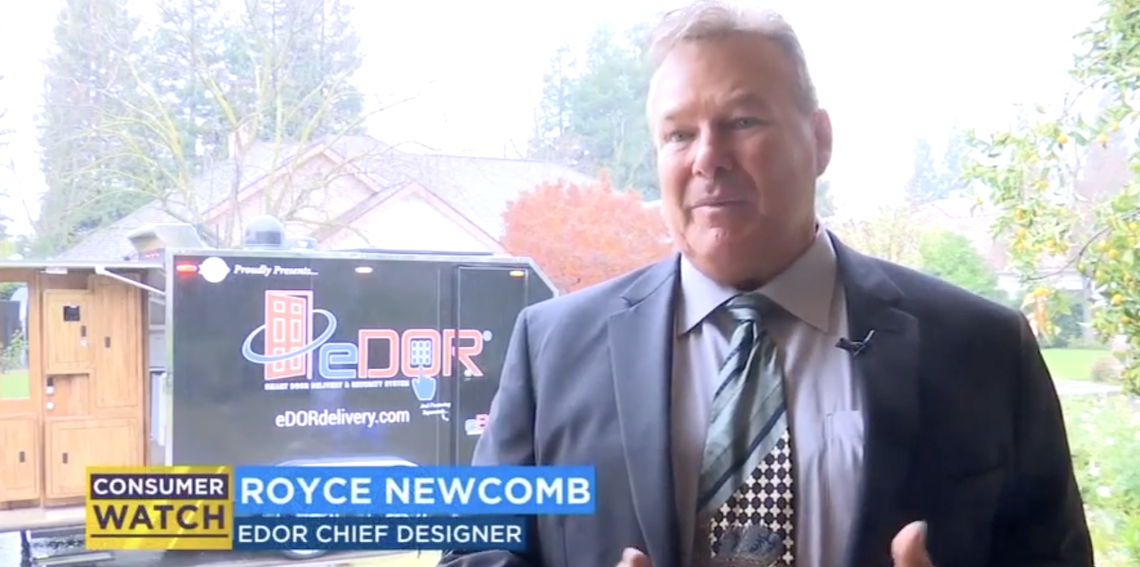
Royce Newcomb of Fresno has pleaded guilty to running a $4.2 million fraud scheme through his business. ABC 30 screen grab.
Written by Dylan Gonzales
Royce Newcomb, a 62-year-old Fresno resident, pleaded guilty Monday to wire fraud and money laundering charges in a scheme that defrauded investors, lenders and the federal government of $4.2 million, Acting U.S. Attorney Michele Beckwith announced yesterday.
He is scheduled to be sentenced on May 5. The wire fraud charge carries a maximum penalty of 20 years in prison and a $250,000 fine, while the money laundering charge carries a maximum of 10 years and a $250,000 fine. The court will determine the final sentence based on statutory guidelines.
He was arrested and charged in November 2022.
According to court documents, Newcomb owned Strategic Innovations from 2017 to 2022. Strategic Innovations was a technology startup that claimed to develop smart home and business products designed to prevent package theft, protect deliveries from weather damage and help emergency responders and delivery services locate addresses.
Newcomb gained national recognition for his work and was featured in Time Magazine’s Best Inventions list in 2021 for eLiT Address Box and Security System.
Another product featured on ABC30 was the eDOR — a secured box for packages that expands from a special door. The story listed Newcomb as Strategic Innovation’s chief designer.
He misled investors by falsely claiming that he received a grant from the National Science Foundation and that their funds would be used to help his products come to market. Instead, Newcomb used the money for personal expenses such as gambling, luxury vehicles and a mansion. The funds were also used to pay refunds to previous investors and finance unrelated projects without investor approval.
Newcomb obtained a fraudulent COVID-19 relief loan of over $70,000 from the Small Business Administration and more than $190,000 in loans from private lenders.
Newcomb was also convicted federally in 2011 for a real estate fraud scheme in Sacramento and sentenced to more than five years in prison.
The case is part of the California COVID-19 Fraud Enforcement Strike Force, an initiative by the U.S. Department of Justice to combat pandemic-related fraud. The strike force targets large-scale, multistate fraud operations using data analysis and law enforcement collaboration.








